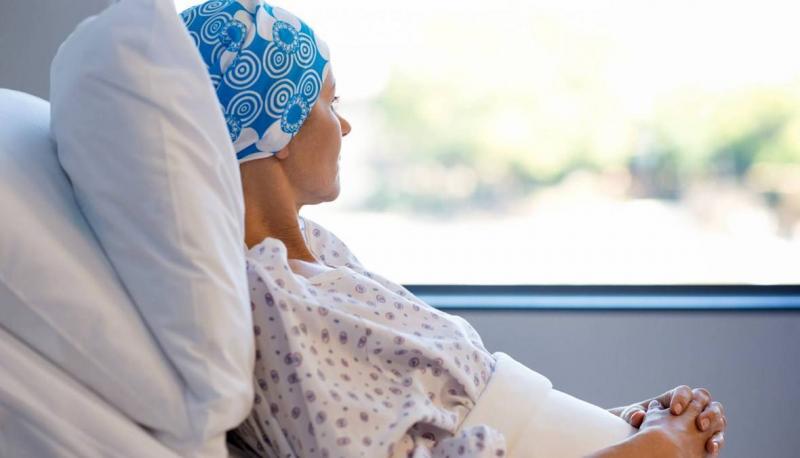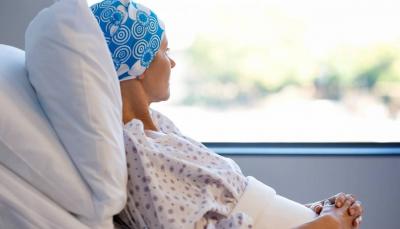The Minister of Public Health in the caretaker government, Firas Al-Abyad, reassured that "part of the cancer medications is now secured in Lebanon," and stated, "There are remaining parts that will arrive in the coming weeks." He clarified that "the ministry has not been able to secure medication for all cancer patients," adding, "Medication has been secured for 90%, while 10% will remain without medication."
He expressed his regret during the "Lebanese Scene" program on Al-Hurra channel with Mona Saliba, "for the existence of patients who cannot access medication, either due to its unavailability or its high cost," stating, "We are trying to resolve this issue." While explaining that "the irregular delivery of cancer medications is due to the sporadic provision of support funds," he pointed out that "the agreement reached with pharmaceutical companies will ensure medication availability for three to four months, not month by month." He added, "The ministry has managed to increase the allocated budget for cancer medication during the crisis from about $12 million to around $20 million."
He confirmed the "presence of counterfeit medications in Lebanon," stating, "There are merchants exploiting desperate patients to sell them counterfeit medicines, and it is up to the state and its security apparatus to follow up on this matter."
He talked about "forged prescriptions that some individuals use to obtain medication from pharmacies at 5% of its price, only for the medication to be smuggled and sold abroad," saying, "This issue can be monitored through tracking."
He considered that "the interruption of medication has led to the creation of a black market, and combating the black market requires ensuring medication for patients." The Minister of Health stated, "Before the crisis, the state and insurance bodies covered about 70% of the healthcare bill, meaning the patient paid around 30%. Currently, due to the crisis and currency collapse, coverage has decreased, and the patient now bears about 85% of the healthcare bill. Due to this cost, there are patients in Lebanon who do not receive treatment and have reached the point of choosing between eating or getting treated. The solution remains in increasing coverage; we have asked for an increase in the healthcare budget for the Ministry of Health by seven times, but the problem remains in financing."
He added: "There is a new development that people should understand: the World Bank has reclassified Lebanon from a high-income country to a low-income country, which will negatively impact the loans we can obtain, making them less due to decreased confidence."
He continued: "Lebanon used to import the best medicines in the world. Today, the entities that assist are telling us that they can help with medications they consider essential but not necessarily the best medicines."
He noted that "the factors obstructing assistance to the healthcare sector are a lack of trust," and said, "To emerge from the crisis, we need to find a way to regain financing by implementing reforms." Regarding the main challenges facing hospitals, according to Al-Abyad, it is "securing electricity, which has increased in cost by more than thirty times." He stated, "The human factor is currently and will continue to be the biggest challenge facing the healthcare system in Lebanon due to the labor shortage in this sector."
He revealed that "the shortage of medical and nursing staff has reached about 40% according to the study we conducted with the World Health Organization," stating, "I think the number is even higher."
He added: "This migration continues, and we have started to notice its impact on certain specialties, with some specialties now having only one or two doctors in Lebanon, such as pediatric cardiac surgery, and in pediatric intensive care where we now have fewer than ten doctors."
He continued: "There are many challenges facing hospitals, but the solutions we see today are through integration, not closure, with small hospitals trying to merge with larger ones." Regarding COVID-19, the Minister of Health confirmed that "the numbers will increase in Lebanon, as we are also seeing an increase worldwide, but the important thing is that the number of cases needing hospitalizations does not significantly rise. Today, the total cases in hospitals do not exceed seventy cases."
He added: "Lebanon cannot be compared to the UK, for example, where the vaccination rate is 85%. In Lebanon, this rate is still below 50%."
He strongly urged citizens to get vaccinated, emphasizing that the vaccination provided by the Ministry of Health is free, so that, God forbid, we do not have to tighten measures again, calling for "mask-wearing."
He also urged "the elderly and those with chronic illnesses to take additional precautions," saying, "As long as the numbers are under control, we certainly will not call for lockdowns."
He clarified that "the migration of doctors and nurses will hinder the ability to reopen COVID-19 departments in many hospitals."
He concluded: "There is no need to return to the previous strict measures at the airport, such as PCR testing, but we still require incoming travelers to present a PCR result if they have received only two vaccine doses."




